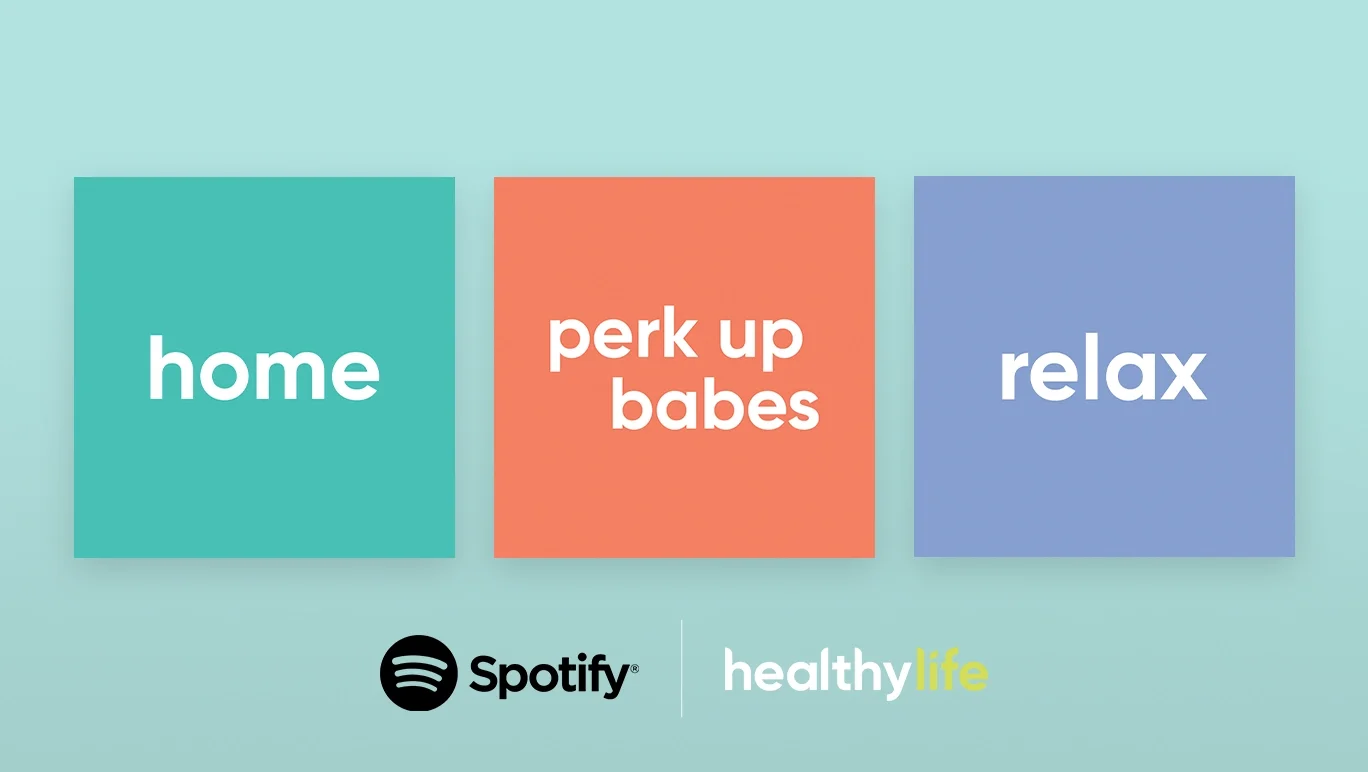Let’s take a deeper look at how music can be good for you and your health. And while we do, why not press play on one of three special Spotify playlists created by our in-house music expert here at healthylife, Nicole Bush.
Crank up the volume, throw on some activewear and get moving to the uplifting, inspiring and pumped up beats.
For when you're in the mood for a mix of downtempo tunes – chill vibes only.
Tune in for more than just a little background noise, and get little more music in your day.
Each playlist has been designed to evoke emotions linked to some of the different health benefits of listening to music. And don’t worry, they’re kid-friendly – no sweary songs made the cut.

When you experience joy from music, research suggests that your hypothalamus and parts of your hippocampus are activated in the brain.
Music, psychology & you
Have you ever felt goosebumps or had shivers from listening to a spectacular piece of music? What you’ve experienced is a ‘frisson’ (AKA ‘Skin Orgasm’).
Scientists have discovered that during a skin-gasm, the Nucleus accumbens, a part of the reward system in our brain, gets activated and increases levels of the feel-good chemical dopamine. Generating pleasure is just one of the many positive impacts that music has on our psychology.
Music therapy for your mind
Officially, music therapy is where a trained allied health professional uses music to support someone’s wellbeing. But, you don’t have to be a trained expert to enjoy the health benefits of music.
When you experience joy from music, research suggests that your hypothalamus and parts of your hippocampus are activated in the brain. This has been linked with a reduction of emotional stress and lower cortisol levels. The mental effects of music help lower stress to enhance your emotional wellbeing.
Now’s the perfect time to listen to the Relax playlist, which Nicole says has a mix of downtempo tunes – chill vibes only.
The benefits of music and exercise together
Listening to music while exercising has been associated with significant beneficial impacts on our emotions, physical performance, perceived exertion (how hard we feel our bodies are working) and oxygen consumption. Research also suggests that music could help us to work out longer or more intensively by distracting us from pain during exercise.
For low-moderate intensity exercise, music has been shown to increase exercise enjoyment levels and enhance performance. So all we have to do to enjoy jogging more is to pump up the jams? I’m on board – let’s do this!
Crank up the volume, throw on some activewear and get moving to the uplifting, inspiring and pumped up beats on the Perk Up Babes Playlist.
“It’s best for the gym or those mornings when you need a perk up that doesn’t involve caffeine,” Nicole says.

Officially, music therapy is where a trained allied health professional uses music to support someone’s wellbeing. But, you don’t have to be a trained expert to enjoy the health benefits of music.
Music's influence on focus and concentration while studying
While it may help in reducing stress and making exercise more enjoyable, music’s impact on focus and concentration while studying is not so clear cut.
Some studies have found that listening to music has no impact on learning outcomes. While others have noticed negative impacts and some have observed positive effects.
A meta-analysis (study of the studies) on the effects of background music on adults found that it “disturbs the reading process, has some small detrimental effects on memory, but has a positive impact on emotional reactions and improves achievements in sports.”
There needs to be more research on how music affects the brain while studying, but in the meantime keep doing what works best for you.

Get some more music in your life. Music and health = good for you!
Does listening to music help you sleep?
A meta-analysis done by researchers in 2019 concluded that “the positive effects of listening to music on subjective ratings of sleep quality are well established across different age groups including both healthy participants and patients.”
So, yes, it would seem that listening to music can help you catch some z’s.
Where words fail, music speaks
Get some more music in your life. Music and health = good for you! Feel more pleasure (skingasm, anyone?), reduce your stress, improve your emotional wellbeing, have better workouts and sleep like a baby (the ones that sleep through the night).
Listen to Nicole’s third playlist, Home. “It’s perfect to have on in the background, which gives you more opportunities to include music in your daily life,” Nicole says.
So, now it’s time for the words to fail and for the music to speak.
Related:
Reviewed by the healthylife Advisory Board June 2021



